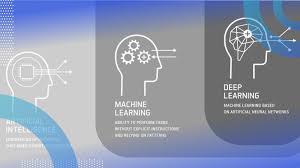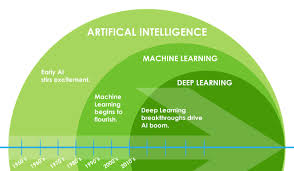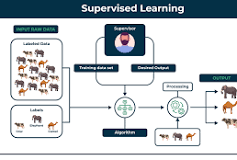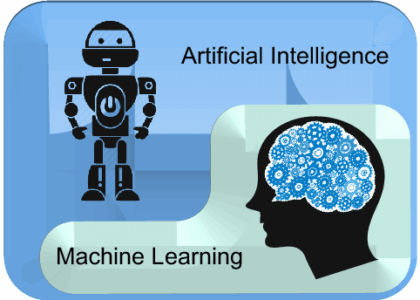Artificial Intelligence and Deep Learning: Transforming the Future
Artificial Intelligence (AI) and Deep Learning are two of the most transformative technologies of our time. They are reshaping industries, enhancing human capabilities, and offering unprecedented opportunities for innovation. As these technologies continue to evolve, they promise to revolutionise the way we live and work.
Understanding Artificial Intelligence
Artificial Intelligence refers to the simulation of human intelligence processes by machines, especially computer systems. These processes include learning, reasoning, problem-solving, perception, and language understanding. AI systems are designed to perform tasks that typically require human intelligence.
The applications of AI are vast and varied. From virtual assistants like Siri and Alexa to more complex systems such as autonomous vehicles and advanced robotics, AI is becoming an integral part of our daily lives.
The Rise of Deep Learning
Deep Learning is a subset of machine learning that uses neural networks with many layers (hence “deep”) to analyse various factors of data. It mimics the workings of the human brain in processing data for use in decision making.
The power of deep learning lies in its ability to handle large amounts of unstructured data such as images, audio files, and text documents. This capability has led to significant advancements in areas such as image recognition, natural language processing (NLP), and speech recognition.
Applications Across Industries
The impact of AI and deep learning is being felt across numerous industries:
- Healthcare: AI algorithms are being used for early diagnosis through medical imaging analysis, personalised treatment plans based on patient data, and even robotic surgery.
- Finance: Financial institutions leverage AI for fraud detection, algorithmic trading, risk management, and customer service via chatbots.
- Automotive: Autonomous vehicles rely heavily on deep learning for navigation systems that interpret real-time data from sensors around the vehicle.
- E-commerce: Retailers use AI for personalised recommendations based on customer behaviour analysis, inventory management automation, and enhancing customer experiences online.
The Challenges Ahead
Despite its potential benefits, the rise of AI also poses several challenges. Ethical considerations around privacy, security risks associated with automated systems, job displacement due to automation technologies—these issues require careful consideration from policymakers and industry leaders alike.
The Road Ahead
The future holds immense possibilities as researchers continue pushing boundaries with deeper integrations between humans & machines through advanced cognitive computing capabilities provided by Artificial Intelligence & Deep Learning technologies.
This journey will require collaboration among technologists & ethicists alike ensuring responsible development practices while maximising societal benefits derived from these powerful tools shaping tomorrow’s world today!
7 Essential Tips for Mastering Artificial Intelligence and Deep Learning
- Understand the basics of machine learning before diving into AI and deep learning.
- Stay updated with the latest research and advancements in AI and deep learning.
- Experiment with different neural network architectures to gain practical experience.
- Data quality is crucial – ensure your datasets are clean and relevant for training models.
- Regularly fine-tune hyperparameters to improve model performance.
- Consider the ethical implications of AI applications and strive for responsible AI development.
- Collaborate with peers in the field to exchange knowledge and insights.
Understand the basics of machine learning before diving into AI and deep learning.
Before embarking on the journey into artificial intelligence and deep learning, it’s crucial to have a solid understanding of the basics of machine learning. Machine learning serves as the foundation upon which AI and deep learning are built, providing essential concepts such as algorithms, data processing, and pattern recognition. By grasping these fundamental principles, one can better appreciate how AI systems learn from data and improve over time. This foundational knowledge not only aids in comprehending more complex topics but also equips individuals with the skills needed to effectively apply AI technologies in various real-world scenarios. Understanding machine learning basics ensures a smoother transition into the more advanced realms of AI and deep learning.
Stay updated with the latest research and advancements in AI and deep learning.
In the rapidly evolving fields of artificial intelligence and deep learning, staying updated with the latest research and advancements is crucial for professionals and enthusiasts alike. As these technologies continue to advance at an unprecedented pace, new methodologies, tools, and applications are constantly emerging. Keeping abreast of these developments not only enhances one’s understanding but also opens up opportunities for innovation and collaboration. Engaging with academic journals, attending conferences, participating in webinars, and joining professional networks are effective ways to remain informed about cutting-edge breakthroughs. By staying updated, individuals can ensure they are well-equipped to leverage AI and deep learning in their respective fields, driving progress and maintaining a competitive edge.
Experiment with different neural network architectures to gain practical experience.
Experimenting with different neural network architectures is a crucial step in gaining practical experience with artificial intelligence and deep learning. By exploring various configurations, such as convolutional neural networks (CNNs) for image processing or recurrent neural networks (RNNs) for sequence prediction, one can better understand the strengths and limitations of each model. This hands-on approach allows practitioners to tailor architectures to specific tasks, improving performance and efficiency. Additionally, experimenting with hyperparameters like learning rates, activation functions, and layer depths can lead to insights that are not apparent through theoretical study alone. Such experimentation not only enhances technical skills but also fosters a deeper appreciation for the intricacies of AI systems.
Data quality is crucial – ensure your datasets are clean and relevant for training models.
In the realm of artificial intelligence and deep learning, the quality of data is paramount. Ensuring that datasets are clean and relevant is crucial for training effective models. High-quality data directly impacts the accuracy and performance of AI systems, as models learn patterns and make decisions based on the information they are fed. Poor data quality can lead to biased outcomes, reduced model efficiency, and erroneous predictions. Therefore, it is essential to meticulously curate datasets by removing inaccuracies, filling in missing values, and ensuring relevance to the specific task at hand. By prioritising data quality, developers can build robust AI models that deliver reliable and meaningful results.
Regularly fine-tune hyperparameters to improve model performance.
Fine-tuning hyperparameters is a crucial step in optimising the performance of artificial intelligence and deep learning models. Hyperparameters, such as learning rate, batch size, and the number of layers in a neural network, significantly influence how a model learns from data. Regularly adjusting these parameters can lead to improved accuracy and efficiency. By systematically experimenting with different settings, developers can identify the optimal configuration that enhances model performance while avoiding overfitting or underfitting. This iterative process not only refines the model but also ensures it remains robust when encountering new data. As AI and deep learning technologies continue to advance, fine-tuning hyperparameters will remain a vital practice for achieving superior results.
Consider the ethical implications of AI applications and strive for responsible AI development.
As artificial intelligence and deep learning technologies advance, it is crucial to consider their ethical implications and strive for responsible AI development. The deployment of AI systems across various sectors raises concerns about privacy, bias, and accountability. Ensuring that AI applications are developed with fairness and transparency in mind is essential to prevent unintended harm and discrimination. Developers must engage in ethical decision-making processes, considering the societal impact of their innovations. By prioritising responsible AI practices, we can harness the potential of these technologies to benefit society while safeguarding fundamental human rights and values.
Collaborate with peers in the field to exchange knowledge and insights.
Collaborating with peers in the field of artificial intelligence and deep learning is invaluable for exchanging knowledge and insights. Engaging with fellow professionals allows for the sharing of diverse perspectives and innovative ideas, which can lead to breakthroughs and advancements in research and application. By participating in discussions, attending conferences, or joining specialised forums, individuals can stay abreast of the latest developments, methodologies, and best practices. This collaborative approach not only fosters a deeper understanding of complex concepts but also encourages the development of more robust and effective AI solutions. In a rapidly evolving field like AI, building a network of knowledgeable peers can significantly enhance one’s ability to adapt to new challenges and opportunities.






